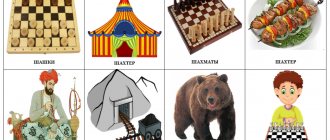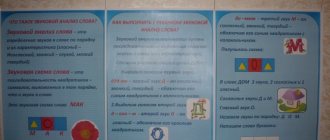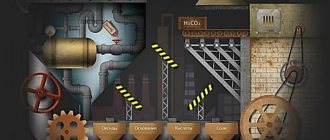The most difficult text in life
“If there is victory, then there must be battle. If a battle is coming, then war is likely. If war is inevitable, then it is necessary to prepare. The better prepared, the less cowardice in a particular battle, the calmer you are about the outcome. There is a bit of cynical, obvious primitivism in this. In general, this is not always a saving law, but much more often it is decisive. It is difficult to fight successfully while remaining conservative, but this does not mean an immediate change in fundamental principles, because, as usual, the details will bring results. Only these very details are a trap. Being carried away by a small competitive advantage, it is very easy to miss those global and simple things that seem to be the same for all warring parties.”
The only goal of a team sport is to create a team that will gather sympathy (whose? - usually it doesn’t matter). The point is to achieve a sufficient number of interconnected performers who meet certain requirements shaped by healthy sports competition and our specific taste. In other words: it is necessary to connect work and people
. At the same time, it is important to correctly interpret the related processes, not forgetting that each concept can have more than one definition. Eleven pieces on a magnetic board have absolutely no idea if the connections between them are not indicated.
Communication is the result of working with people, characterizing the final integrity of the structure. Perhaps it would be correct to call this operation “management,” but not in the modern world. This is too grimy a process for mass awareness: white cuffs instantly lose their presentable appearance. In any case, this result emerges through routine - the most complex emotions, the most concentrated stress. An instant result does not move you from your place, only a long trend proves the absence of chance. Ninety minutes of a match is too short a period of time, so no one person can be responsible for the result of the game. But! Everyone is responsible for the decision made. This is the essence of a system that will survive and regulate itself even in times of crisis.
Work is a search for solutions to problems. Looking for something that you can influence and control is healthy, although it may turn out to be more boring than boring and more monotonous than monotonous. But, feel, “passively winning a point” is not the way of the successful. Climbing where no one dared, or thinking about what others have long given up on, will definitely not make you weaker. Not everyone can be beautiful, someone needs to grow up smart. Of course, all this is out of your comfort zone, but fear should not determine the future. Well, in order not to be afraid, you just need to believe in the process. The logic is simple: without faith there is no passion, and work without passion turns into hack work. Notice that we either spend money on what we believe in, or we painfully wait for the moment when a new reason to believe arises.
Selection is responsible for people in football. Fundamentally, this is a search for perspective, and such that after the expiration of the “novelty effect”, at least minimal satisfaction remains. This is a sincere desire to grow and become stronger. This is changing the market before you start losing on it. This is not a camouflage to hide a previous mistake against the backdrop of a new, even uglier mistake. This is a new idea that does not break the accepted philosophy. This is a reasoned game of being ahead of the curve in what most people tend to guess. Thus, selection is not limited to the open transfer window. If the structure does not have a permanent (current) rating of performers, there is no point in having an expert department. From here, most likely, you will not be able to get closer to the goal.
Only the one in front will become a contender for the title “Best”.
Probably one of the most difficult tasks in any business is formulating a goal. For me, this is generally a separate fundamental science. You can run through a million ideas in your head, but never turn them into something sensible. An idea is a kind of ideal model. Model of the future. Perhaps a blissful thought that only the author believes in. When projected onto reality, it is often distorted and even lost. Carrying an idea through circumstances is a special indicator of strength. But we are weak. We are weak because we do not nurture an idea until it is transformed into a clear goal. When faced with difficulties, over time, we rather stop demanding something from ourselves than achieve what we intended, i.e. We lose concentration, and with it our chances of success.
A goal is a polished idea. The game is a struggle of ideas. The struggle of goals is competition.
Search has no limitations other than time, so time spent productively is a key competitive advantage in everything. Sometimes working hours can be deceived by solving a game episode not with a tactical move, but with a strategic move. In particular, you can make the test part of the training process or take a structural approach to the execution of corner kicks. This will provide the opportunity to take a more individual approach to other tasks that require stronger connections and polishing. If you go to bed with a watch on your wrist, then most likely you are somewhere close to the answer you are looking for, this is a disciplinary unique feeling.
If you work hard, there is a high probability that order will come. The moment when all the “cogs in the mechanism” begin to receive satisfaction from the process. It's a strange comparison, of course. Cogs, balls, rollers. No, feeding on positivity alone is absolutely unhealthy, but the fact of conscious responsibility will allow you to let go of thoughts that undermine faith in the process.
Football is a game, and we are trying to tame it, decompose it, count it. Only the game is a little more than alive, and if for statistics “one” is an error, then for the game it is a result. Forget about the conventional two numbers, looking at which the cherished result will be guaranteed. This is too expensive and complex a sport to fit the whole essence into two lines. What is needed is an analysis somewhere between deduction and induction. Tossing around within this segment, sincerely hoping that you know what you want, will help give birth to something worthy. After all, only then will it be possible to find and not forget arguments for debate, turning the brothel in the subconscious into something systematic and original.
Level A1 (Beginner)
This is a basic or beginner level of learning English. Here the simplest grammar and vocabulary, the themes of the stories describe the simplest everyday situations and provide basic information about a person.
My day
First, I wake up. Then, I get dressed. I walk to school. I don't ride a bike. I don't ride the bus. I like to go to school. It rains. I don't like rain. I eat lunch. I eat a sandwich and an apple.
I play outside. I like to play. I read a book. I like to read books. I walk home. I don't like walking home. My mother cooks soup for dinner. The soup is hot. Then, I go to bed. I don't like to go to bed.
Our Vacation
Every year we go to Florida. We like to go to the beach. My favorite beach is called Emerson Beach. It is very long, with soft sand and palm trees. It is very beautiful. I like to make sandcastles and watch the sailboats go by. Sometimes there are dolphins and whales in the water!
Every morning we look for shells in the sand. I found fifteen big shells last year. I put them in a special place in my room. This year I want to learn to surf. It is hard to surf, but so much fun! My sister is a good surfer. She says that she can teach me. I hope I can do it!
My name is John
Hi! Nice to meet you! My name is John Smith. I am 19 and a student in college. I go to college in New York. My favorite courses are Geometry, French, and History. English is my hardest course. My professors are very friendly and smart. It's my second year in college now. I love it!
I live in a big house on Ivy Street. It's near the college campus. I share the house with three other students. Their names are Bill, Tony, and Paul. We help each other with homework. On the weekend, we play football together.
I have a younger brother. He just started high school. He is 14 and lives with my parents. They live on Mulberry Street in Boston. Sometimes they visit me in New York. I am happy when they visit. My Mom always brings me sweets and candy when they come. I really miss them, too!
Level C1 (Advanced)
Free communication in English in almost any situation, from everyday life to studying at university and working in a completely English environment with native speakers.
Sustainable supermarkets
Many of the major supermarket chains have come under fire with accusations of various unethical acts over the past decade. They've wasted tons of food, they've underpaid their suppliers and they've contributed to excessive plastic waste in their packaging, which has had its impact on our environment.
But supermarkets and grocers are starting to sit up and take notice. In response to growing consumer backlash against the huge amounts of plastic waste generated by plastic packaging, some of the largest UK supermarkets have signed up to a pact promising to transform packaging and cut plastic waste. In a pledge to reuse, recycle or compost all plastic waste by 2025, supermarkets are now beginning to take some responsibility for the part they play in contributing to the damage to our environment, with one major supermarket announcing their plan to eliminate all plastic packaging in their own-brand products by 2023.
In response to criticisms over food waste, some supermarkets are donating some of their food surplus. However, charities estimate that they are only accessing two per cent of supermarkets' total food surplus, so this hardly seems to be solving the problem. Some say that supermarkets are simply not doing enough. Most supermarkets operate under a veil of secrecy when asked for exact figures of food waste, and without more transparency it is hard to come up with a systematic approach to avoiding waste and to redistributing surplus food.
Some smaller companies are now taking matters into their own hands and offering consumers a greener, more environmentally friendly option. Shops like Berlin's Original Unverpakt and London's Bulk Market are plastic-free shops that have opened in recent years, encouraging customers to use their own containers or compostable bags. Online grocer Farmdrop eliminates the need for large warehouses and the risk of huge food surplus by delivering fresh produce from local farmers to its customers on a daily basis via electric cars, offering farmers the lion's share of the retail price.
There is no doubt that we still have a long way to go in reducing food waste and plastic waste. But perhaps the major supermarkets might take inspiration from these smaller grocers and gradually move towards a more sustainable future for us all.
A threat to bananas
In the 1950s, Central American commercial banana growers were facing the death of their most lucrative product, the Gros Michel banana, known as Big Mike. And now it's happening again to Big Mike's successor – the Cavendish.
With its easily transported, thick-skinned and sweet-tasting fruit, the Gros Michel banana plant dominated the plantations of Central America. United Fruit, the main grower and exporter in South America at the time, mass-produced its bananas in the most efficient way possible: it cloned shoots from the stems of plants instead of growing plants from seeds, and cultivated them in densely packed fields.
Unfortunately, these conditions are also perfect for the spread of the fungus Fusarium oxysporum f. sp. cubense, which attacks the plant's roots and prevents it from transporting water to the stem and leaves. The TR-1 strain of the fungus was resistant to crop sprays and traveled around on boots or the tires of trucks, slowly infecting plantations across the region. In an attempt to escape the fungus, farmers abandoned infected fields, flooded them and then replanted crops somewhere else, often cutting down rainforest to do so.
Their efforts failed. So, instead, they searched for a variety of banana that the fungus didn't affect. They found the Cavendish, as it was called, in the greenhouse of a British duke. It wasn't as well suited to shipping as the Gros Michel, but its bananas tasted good enough to keep consumers happy. Most importantly, TR-1 didn't seem to affect it. In a few years, United Fruit had saved itself from bankruptcy by filling its plantations with thousands of the new plants, copying the same monoculture growing conditions Gros Michel had thrived in.
While the operation was a huge success for the Latin American industry, the Cavendish banana itself is far from safe. In 2014, South East Asia, another major banana producer, exported four million tons of Cavendish bananas. But, in 2015, its exports had dropped by 46 per cent thanks to a combination of another strain of the fungus, TR-4, and bad weather.
Growing practices in South East Asia haven't helped matters. Growers can't always afford the expensive lab-based methods to clone plants from shoots without spreading the disease. Also, they often aren't strict enough about cleaning farm equipment and quarantining infected fields. As a result, the fungus has spread to Australia, the Middle East and Mozambique – and Latin America, heavily dependent on its monoculture Cavendish crops, could easily be next.
Racing against the inevitable, scientists are working on solving the problem by genetically modifying the Cavendish with genes from TR-4-resistant banana species. Researchers at the Queensland University of Technology have successfully grown two kinds of modified plant which have remained resistant for three years so far. But some experts think this is just a sophisticated version of the same temporary solution the original Cavendish provided. If the new bananas are planted in the same monocultures as the Cavendish and the Gros Michel before it, the risk is that another strain of the disease may rise up to threaten the modified plants too.
Level A2 (Elementary)
Slightly more complex grammar and more varied vocabulary. More tenses, sentences become more complex, and topics become more varied and detailed.
At school
Lucas goes to school every day of the week. He has many subjects to go to each school day: English, art, science, mathematics, gym, and history. His mother packs a big backpack full of books and lunch for Lucas.
His first class is English, and he likes that teacher very much. His English teacher says that he is a good student, which Lucas knows means that she thinks he is a good student.
His next class is art. He draws on paper with crayons and pencils and sometimes uses a ruler. Lucas likes art. It is his favorite class.
His third class is science. This class is very hard for Lucas to figure out, but he gets to work with his classmates a lot, which he likes to do. His friend, Kyle, works with Lucas in science class, and they have fun.
Then Lucas gets his break for lunch. He sits with Kyle while he eats. The principal, or the headmaster as some call him, likes to walk around and talk to students during lunch to check that they are all behaving.
The next class is mathematics, which most of the students just call math. Kyle has trouble getting a good grade in mathematics, but the teacher is very nice and helpful.
His fourth class is gym. It is just exercising.
History is his last class of the day Lucas has a hard time staying awake. Many lessons are boring, and he is very tired after doing gym.
Going to a restaurant
Sandra and Paul are at a steak restaurant. A waiter greets them.
“Do you know what you would like to drink?” the waiter asks. “Water and orange juice,” Sandra says. “Thank you. Here are your menus," the waiter says.
The waiter brings water for Paul and orange juice for Sandra.
“What would you like to order?” the waiter asks. “I would like a 12-ounce steak and mashed potatoes,” Paul says. “The same thing, but with green beans,” Sandra says. “And two orders of garlic bread,” Paul says. “Great. You should have it in soon,” the waiter says.
The waiter returns after an hour.
“Sorry for your wait. Here are two orders of 12-ounce steaks with mashed potatoes and garlic bread,” the waiter says. “I asked for green beans with mine,” Sandra says. “I'm sorry, I'll get those for you,” the waiter says.
The waiter quickly returns with Sandra's green beans.
Letter to a Friend
Hi Fred!
It's been a while since we have been in touch. How has your semester been?
I wanted to send you an email update to you let you know how things have been going during my semester abroad here in Málaga, Spain. I've already been here for six weeks, and I feel like I am finally adapting to the culture. I'm also speaking the language more fluently.
I arrived during the first week of September. The weather has been very nice. Even though it's October, it's still rather sunny and warm. In fact, I went to the beach and swam in the Mediterranean Sea earlier today.
I am living with a very welcoming host family. I have my own private bedroom, but we eat breakfast, lunch, and dinner together. On Sundays, we eat a big home-cooked paella for lunch. In Spain, lunch is usually the biggest meal of the day. It's also very common for the people to take a midday nap right after a big meal. I am actually just waking up from my nap right now!
On weekdays, I take classes at the local university. There, I met several native Spanish speakers. They have been very kind and patient with me. At first, I struggled to comprehend their Spanish, but now I understand most of our conversations. They have commented that my Spanish has improved a lot since we first met. Now, I am more confident to use the language in other places like stores and restaurants.
I am so glad that I decided to spend the semester here in Spain. We have an extended weekend coming up, so a group of my friends and I are going to travel to France for four days. It's so easy and inexpensive to travel internationally in Europe. I love it!
I look forward to hearing from you soon. Like I said, don't hesitate to stay in touch more often. Perhaps you could even come to visit! What do you think?
Best wishes, Patrick
Level B1 (Intermediate)
This is the so-called average or threshold level. It assumes the ability to communicate and perceive information in English in most everyday situations, without the help of a dictionary or translator.
Chicago
Keith recently came back from a trip to Chicago, Illinois. This midwestern metropolis is found along the shore of Lake Michigan. During his visit, Keith spent a lot of time exploring the city to visit important landmarks and monuments.
Keith loves baseball, and he made sure to take a visit to Wrigley Field. Not only did he take a tour of this spectacular stadium, but he also got to watch a Chicago Cubs game. In the stadium, Keith and the other fans cheered for the Cubs. Keith was happy that the Cubs won with a score of 5-4.
Chicago has many historic places to visit. Keith found the Chicago Water Tower impressive as it is one of the few remaining landmarks to have survived the Great Chicago Fire of 1871. Keith also took a walk through Jackson Park, a great outdoor space that hosted the World's Fair of 1892. The park is great for a leisurely stroll, and it still features some of the original architecture and replicas of monuments that were featured in the World's Fair.
During the last part of his visit, Keith managed to climb the stairs inside of the Willis Tower, a 110-story skyscraper. Despite the challenge of climbing the many flights of stairs, Keith felt that reaching the top was worth the effort. From the rooftop, Keith received a gorgeous view of the city's skyline with Lake Michigan in the background.
Going to work in the morning
My job is a long distance from my home, almost 50 miles away. I have to wake up early every morning, as I'm always in a rush. There's never enough time for a relaxed breakfast. At exactly 6:00 AM, I get into my car and start the long drive.
I usually like driving on the highway more than in the city. During the morning rush hour, though, it's not very enjoyable. The heavy traffic is a little bit annoying. So I always listen to my favorite classical music CD's in the car – Chopin, Mozart, and Bach. That cheers me up a lot.
The drive to work takes about one hour. Going back home in the evening after work takes even longer, maybe around 70 minutes. Lately I've been thinking about trying to take the train to work instead of driving. That way, I could still listen to my music with headphones, and even read a novel at the same time.
Level B2 (Upper-Intermediate)
At this level, the speaker can already reason and read more abstract and specialized texts, understand set expressions, humor and hidden meaning.
Boston
Jean and her family recently traveled to Boston, Massachusetts, one of America's oldest colonial cities. Boston is rich in history and local personality. During their visit, Jean and her family appreciated learning about Boston's role during the American Revolution.
In the city, Jean and her family followed the famous Freedom Trail. This is a 2.5-mile route that tourists can explore in order to visit 16 different historical landmarks located throughout the city. Famous sites on this trail include the Paul Revere House, King's Chapel, and the Bunker Hill Memorial. Jean and her family received a map to navigate the Freedom Trail. The roads were clearly marked by red lines, and there were signs throughout the city to keep Jean's family and other tourists from getting lost.
As part of the Freedom Trail, Jean and her family spent a lot of time in Boston's North End. This is one of the oldest residential neighborhoods in the entire country. Here, Jean and her family were able to visit Boston Harbor, which is the site of the historical Boston Tea Party. This event sent a strong message to the British leading up to the American Revolution.
The end of the Freedom Trail led Jean and her Family to the Boston Common, the oldest urban park in the nation. The park is filled with plenty of lush greenery, but it also serves as a burial ground for heroes of the American Revolution.
Because of their walk along the historical Freedom Trail, Jean and her family left Boston with a thorough understanding of early American history.
Amazon adventurer
Ed Stafford from the UK is the first person to walk the length of the Amazon River. He started by a small stream in the Andes mountains of Peru and arrived at the river's mouth in Brazil, two years and four months later, having walked 6,000 kilometres.
The Amazon rainforest is home to poisonous snakes, crocodiles and jaguars, so Ed was in constant danger. Luckily, he survived with nothing worse than a few thousand mosquitoes and ant bites. On his trip, Ed had to find food to eat every day. A lot of the time, the fruit, nuts and fish he ate were hard to find and he often felt weak and exhausted.
Ed's walk would have been impossible without technology. He used a radio to ask the people of the rainforest for food and permission to cross their land. Many of them came to meet him and helped guide him through the most difficult terrain. As he walked Ed wrote a blog, recording his day-to-day experiences. He used the media interest in his trip to protest about the destruction of the rainforest and raise money for environmental and children's charities in Brazil and Peru.
Do dreams predict the future?
history Throughout and across cultures, dreams have been associated with prophecy. People thought dreams were messages from the gods, sent to give us knowledge or insight. Even today, many people can recall a time they dreamed about an event, place or person and then, later, the dream came true in real life. But if most people have four to six dreams every night after the age of ten, that's as many as 2,000 dreams per year. So, by the time they reach 80 years old the average person might have had 140,000 dreams. Even if we forget 95–99 per cent of our dreams, that's still a few thousand remembered dreams across a lifetime.
It's not too difficult to believe that, by coincidence, a dream event is followed by a real-life event that's similar to it, especially if the subject of the dream is something that happens often in everyday life. Dreams of a phone call from an old friend or the death of someone close, for example, are more likely to be the result of coincidence than prophecy. And, of course, we probably choose to forget all the times we dream about such events but they don't happen.
Abridged books
Beginners learning English should start working with texts as soon as possible. Firstly, this type of activity helps to remember not just words, but entire expressions. Secondly, by working with texts, you can quickly begin to compose complete sentences, based on the experience gained.
How do you know if a particular text is right for you? If the number of unfamiliar words reaches 15-20%, then you will be able to master this text. If you constantly have to turn to the dictionary for translation, then it is better to leave this text until better times, so as not to completely lose the desire to learn English.
Pay attention to the adapted books in English, the texts in which are distributed at different levels of complexity [look at Ozon.ru]. The easiest ones use between 200 and 350 words, while pre-intermediate or intermediate levels use an average of 3,500 words. Note that knowing this amount of vocabulary, you will be able to freely communicate on any topic, provided that you also know basic grammar.








